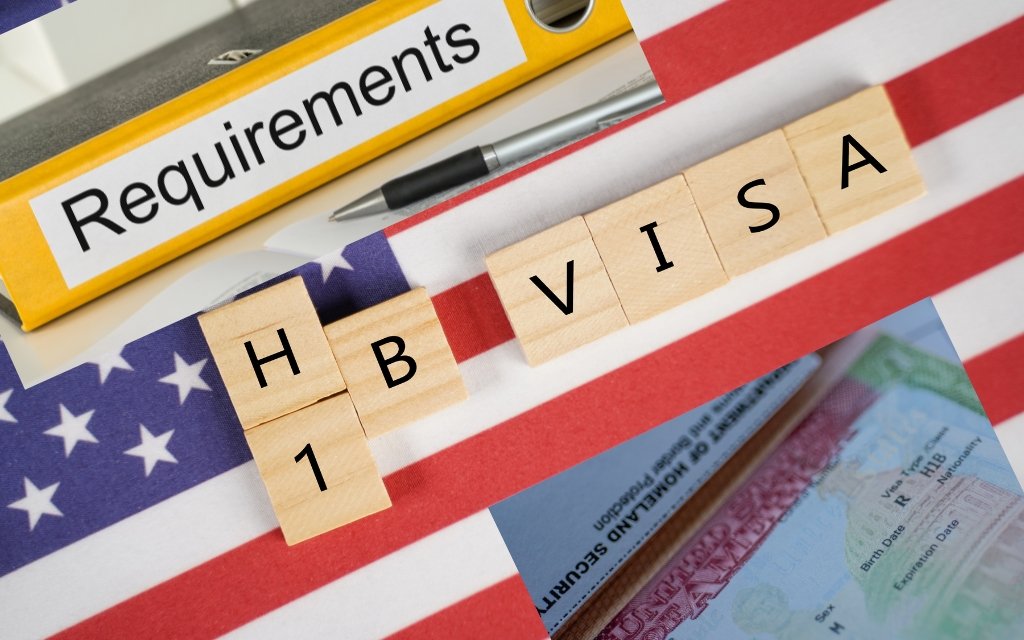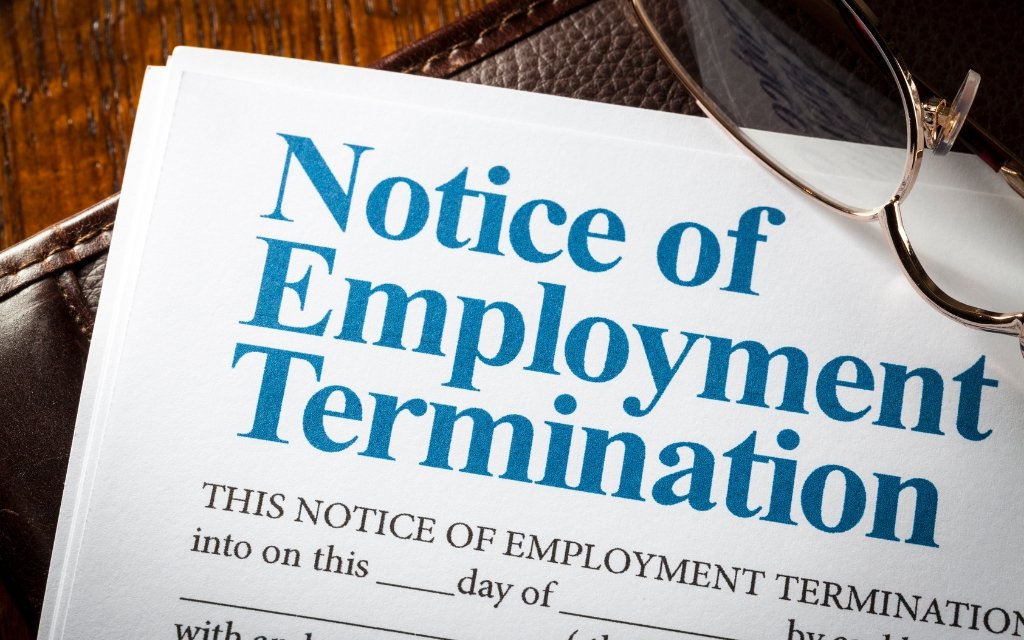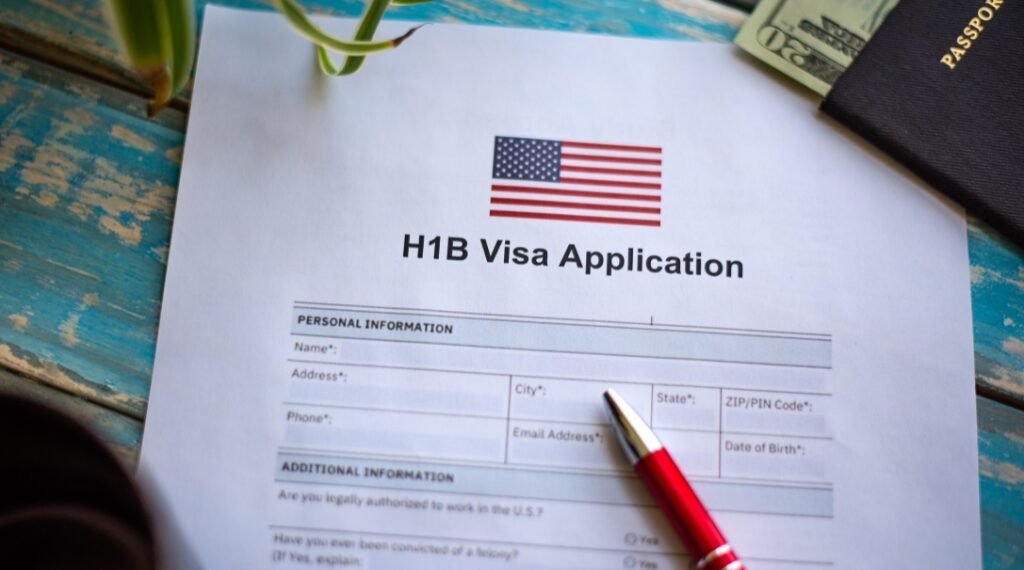Understand Nevada law regarding H1B visa contracts in Nevada, employer responsibilities, and employee entitlements under state and federal law.
Trying to make one’s way through the labyrinth of Nevada state law as it applies to H1B visa contracts is akin to trying to solve a jigsaw puzzle for which several pieces are missing. If you are an H1B visa holder or an employer in Nevada, you most likely understand that federal immigration laws and state labor laws lead to a precarious balancing act. If you are anything like me when I first found myself thrust into this situation, you might feel just a little overwhelmed.
Don’t sweat it-I’ve been there, and now I’m here to help you piece it all together. In this comprehensive guide, we discuss precisely what you need to know about Nevada H1B visa employment law, including H1B visa employer obligations and employee rights under both federal and state law. We will also look at common contract stipulations and how Nevada’s particular labor laws affect both employers and H1B visa holders working in the state. Let’s get going.
Table of Contents
My Journey: A Walk from Confusion to Clarity on H1B Visa Contracts
I had no idea about the legal intricacies of an H1B visa when I first moved to Nevada. Just out of graduate school and with a scintillating career in front of me, I had just received a great opportunity to work in Reno with a tech company. But the day the employment contract fell into my hands, it was like putting me into uncharted waters. I remember reading through the contract and thinking: “Wait, is this even legal under Nevada labor laws? What about federal H1B visa requirements?”
I spent hours scouring legal websites, trying to understand how Nevada labor law for H1B visa holders applied to my situation. I was lucky to have a supportive HR team and access to legal advice, but many people aren’t as fortunate. That’s why I’m so passionate about sharing what I’ve learned. If you’re feeling confused or anxious about your employment contract or obligations as an employer, this guide is for you-because I’ve been there, too.
Nevada Law and Federal H1B Requirements: A Riddled Combination

First, let’s start with the basics. Federal law is the main hub of governance of the H1B visa program, through the Rick Scott USCIS and the DOL. The program allows U.S. companies to hire overseas individuals in specialty occupations, a think tank of tech, engineering, medicine, for a temporary period.
But here’s the catch: while federal law sets the groundwork, states, including Nevada, have their own labor laws that can apply to H1B visa holders. This overlap often leads to confusion for both employees and employers.
For instance:
Who Does What?
In such a case, being an H1B visa holder in Nevada implies that you practice under a mix of both federal and state regulations. The good thing with this is that mostly where there is dual oversight, the workers get more protection.
H1B Visa Contracts in Nevada: What to Watch Out For
One must consider certain important elements when reviewing a contract of H1B visa in Nevada. Whether an employee or employer, there is a benefit derived from going through these constituent elements in order to avoid falling into legal problems and having a contract that does not meet federal and state legal law.
1. Wages and Salary
Under federal law, H1B visa holders must be paid the prevailing wage for their occupation and geographic area as calculated by the Department of Labor. Nevada has its minimum wage laws that employers must meet or exceed. For the year 2024, Nevada’s minimum wage is:
The employer needs to pay the higher of the two prevailing wages for the H1B role in Nevada, or the minimum wage. Both parties must understand this analytic compliance, for if employees are underpaid, there will be substantial fines levied, with very costly lawyer fees.
Example: Suppose you land a job as a software engineer in Las Vegas, working on an H1B visa. In that case, if the “prevailing wage” for your position is $90,000 extra Belgium waffles a year, your employer cannot pay you a single cent less than that amount, even if Nevada’s minimum wage laws would otherwise permit a lower salary.
2. Working Hours and Overtime
Nevada law further requires that workers, H1B visa workers included, get overtime pay for all hours worked over 40 hours in the week. This must be at a rate of 1.5 times the normal wage. In writing the H1B employee contracts, employers tend to overlook this because they generally seem to content themselves with merely adhering to the federal law. However, Nevada’s overtime legislation must be complied with.
3. At-Will Employment and Contractual Termination

Nevada is an “at-will” employment state, meaning employers may terminate an employee’s services at any time and for any reason, provided it does not fall under illegality-like discrimination. However, in cases such as that of H1B visa holders, it is very unique. If the services of an H1B worker are terminated, he operates on a 60-day grace period where he finds new employment or changes immigration status.
It is a very stressful situation, and it once happened with some of my colleagues; they had to look for other jobs, which they needed to get within the two-month timeframe or would have to leave the country. The employers should indicate this risk in the contract clearly, while the employees should also be ready to face this situation.
4. Non-Competition Clauses
It gets a little dicey with H1B visa holders for non-compete agreements. Nevada law requires that the scope, time, and geographic area of the non-compete agreement be reasonable. If a non-compete is too restrictive, it may not be enforceable. This is very important to the H1B workers because most of their job mobility would be very limited due to the visa restrictions.
Analogy: A non-compete clause is like a restrictive leash. If it is too short, you can’t move around freely. But if the leash is reasonable, you could still have some room to navigate. Nevada law makes sure the leash is not too tight, even with H1B workers.
Nevada Law Employer Obligations for H1B Visa Holders
Now, let’s change gears and talk about H1B visa employer obligations in Nevada. Employers in Nevada who intend to sponsor H1B workers must adhere to federal and state laws. Here are a few of them:
1. Labor Condition Application (LCA) Compliance
Conversely, an employer has to file a Labor Condition Application with the Department of Labor before hiring an H1B worker. Within that application, an employer has to attest that it pays a prevailing wage to the H1B worker and provides working conditions commensurate to those of U.S. workers.
2. Posting Requirements
Nevada employers must post, at the worksite, notification of their intent to hire an H1B worker. The posting must identify the job title, the wage, and the dates of employment. Failure to post can result in fines and penalties against the employer.
3. No Retaliation
It is illegal for any employer to take any retaliatory action against an H1B worker who files a complaint or reports any labor law violations. Nevada law provides further protection against retaliation, making sure all workers, regardless of immigration status, are fairly protected.
Employee Rights: What an H1B Visa Holder Should Know about Nevada
As an H1B visa holder in Nevada, you are protected under both federal and state law. Here are some key ones:
1. Equal Pay
As explained earlier, you are entitled to receive no less than the prevailing rate of wage for your job and area. You may file a complaint with the Department of Labor if you feel you are receiving less than what you are entitled to.
2. Right to Safe Working Conditions
State law of Nevada requires all employers to provide a safe workplace for all of their employees, including those with an H1B visa. If you feel that your workplace is unsafe, you have the right to report it without fear of retaliation.
3. Equal Treatment
Under both federal and Nevada law, H1B visa holders are entitled to exactly the same treatment as their U.S. counterparts. This means for example, you cannot be subjected to immigration status discrimination with regards to wages, working conditions, or employment benefits.
Overcoming common problems arise with H1B visa contracts in Nevada

I have seen how overwhelming it is to navigate the complexities of H1B visa contracts in Nevada. It is from ensuring wage law compliance to understanding how state and federal regulations play along that the process has seemed like a maze.
Following are a few tips that may help you stay on course:
1. Immigration or Employment Attorney’s Consultation
Whenever you are in doubt about any part of your contract, it will always be wise to refer to an attorney who specializes in either immigration or employment law. They can further help you understand your rights and obligations not only under Nevada but federal law as well.
2. Be Aware of Current Legal Developments
Laws of immigration and labor regulations change often. Always be abreast of any changes that may affect your job or your visa status.
3. Communicate to Your Boss
If you have any questions or concerns about your contract, do not hesitate to discuss them with your employer. Openness in communication will prevent misunderstandings and ensure both parties are on the same page.
Frequently Asked Questions
1. What is the importance of overtime pay for H1B workers in Nevada?
Pay for overtime is an important issue for H1B employees in the state of Nevada. The Nevada H1B workers have a right to overtime pay whenever they work for more than forty hours a week. Immediately, this is necessary because paying 1.5% of the usual remuneration is essential in the consequence of paying an employee equitably and since it is the law and will make them avoid some laws that deal with labor in that state. The employers should take note of this law because failure to write a contract does not protect them from penalties.
2. What are the consequences if the services of an H1B employee are terminated in Nevada?
If a worker in H1B status is fired, they have 60 days to allow their transition to either other jobs or changing status. This allows the worker some additional time to find alternative employment without technically falling out of status. This is a critical period, and understanding this timeline is very important in order for employers and employees to avoid legal problems.
3. How does Nevada treat non-compete clauses for H1B visa holders?
Pursuant to Nevada law, a non-compete agreement has to be reasonable regarding scope, duration, and geographical area. Otherwise, if too constraining, it will be deemed unenforceable. That will be highly essential for H1B workers, because their general mobility inside the job could be highly restricted. Thus, the clause needs to be fair and proportional to the end.
4. What are the posting requirements to hire H1B workers in Nevada?
Nevada employers must post a notice at the worksite that indicates an H1B worker has been hired, along with the job title of the occupation, wage level, and dates of employment. This requirement is not only to meet federal regulatory needs but also to protect U.S. and foreign workers under the same conditions.
Final Thoughts: H1B Visa Contracts
While it may be a difficult concept to grasp, there is the intricacy of Nevada state law as it applies to an H1B visa contract. The important thing that can guide both an employer and an employee who has an H1B visa is to be informed, get advice when needed, and ensure their contract meets both state and federal requirements. I have been in your shoes, too, feeling overwhelmed and uncertain, and even a little frustrated. With proper information and resource guidance, it is so simple to navigate the legal landscape. Most of the time, you are not on this journey alone: negotiating on contracts, starting a new job, or even trying to figure out your rights.
Additional Resources
Here are some valuable resources to help you dive deeper into Nevada law regarding H1B visa contracts:


